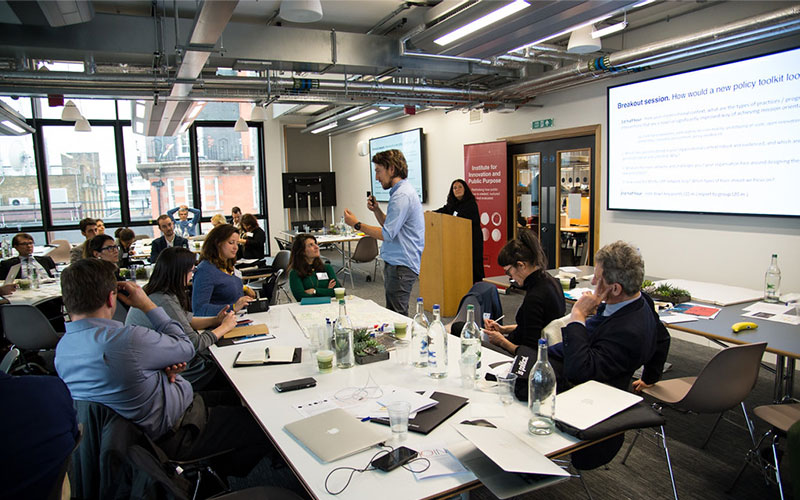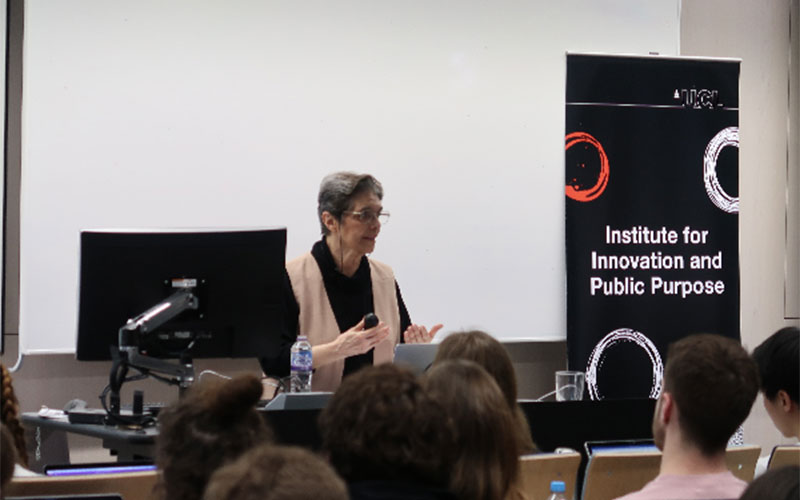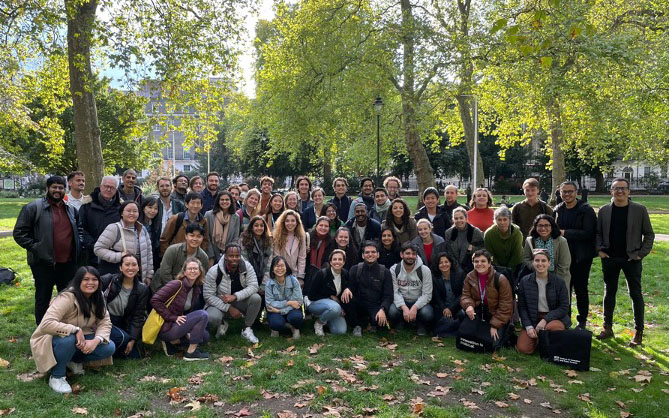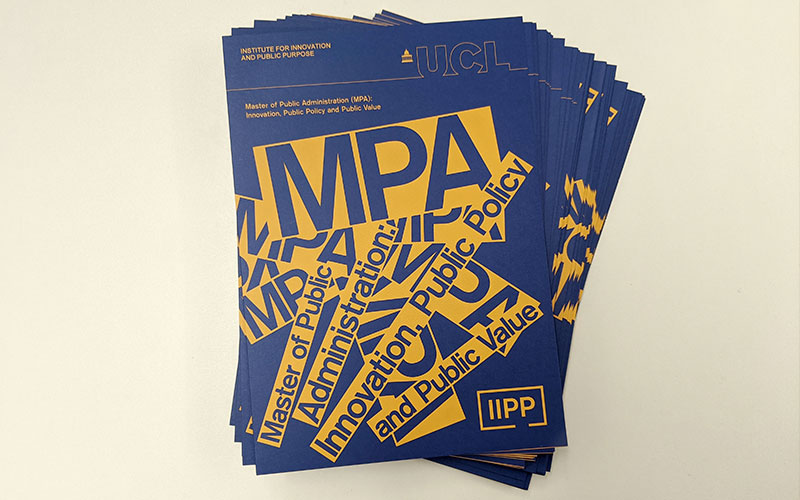Master of Public Administration (MPA) in Innovation, Public Policy and Public Value
The UCL Institute for Innovation and Public Purpose (IIPP) leads the world in rethinking the role of the public sector in co-creating value and driving change.
There is no equivalent postgraduate degree that combines our alternative approach to policymaking, with a focus on structural change and innovation. Our MPA teaches the dynamic skills required for purpose-driven organisations — in public, private, and civil sectors — to confront the grand challenges of the 21st century. Tackling these challenges requires new ways of thinking and new organisational capabilities.
As graduates of the programme, students will be equipped to help reshape organisations to be mission-led, experimental, and driven by public purpose. Students will understand the explorative and risk-taking processes that structural change, innovation, and socioeconomic transformation require.
Curriculum
This globally unique programme provides an in-depth understanding of innovation in economics, technology and organisations—alongside cutting-edge thinking around public administration and governance. Students graduate the programme understanding the theories that shape current practice and with the tools to re-imagine the role of the state. These skills are in demand.
We offer three modes of study:
- Full time: 1 year
- Part time: 2 years
- Modular/Flexible: Up to 5 years
For full-time students the course takes place across three terms, moving from theory to practice. The course begins with foundations in economics and politics in Term One. In Term Two, we focus on organisations and design practice; students also choose optional modules from across UCL, allowing them to focus on particular areas of interest. The course culminates in Term Three with students either taking part in a placement or writing a supervised thesis.
The core modules combine weekly lectures, which are often highly interactive, involving debate and case studies, with small-group seminars, where students dive deeper into particular readings and tools. These activities are enriched by regular guest lectures, events, and opportunities for students to contribute to IIPP’s on-going research and policy action.
- Term one
In term one you will take four 15 credit core modules:
- New Economic Thinking and Public Value (15 credits)
- Economics of Innovation and Public Purpose (15 credits)
- Politics, Power and Systems Change (15 credits)
- Making Decisions: Evidence and Evaluation (15 credits)
- Term two
In term two you will take two 15 credit core modules, and 30 credits of optional modules.
Core modules:
- Creative Bureaucracies (15 credits)
- Transformation by Design (15 credits)
Optional modules:
- Digital Transformation (15 credits)
- Contemporary Political Philosophy II: Social Justice and Equality (15 credits)
- Democracy and Accountability: Holding Power to Account (15 credits)
- Urban Innovation and Policy (15 credits)
- Development, Technology and Innovation Policy (15 credits)
- Smart Cities: Context, Policy & Government (15 credits)
- Social Diversity, Inequality and Poverty (30 credits)
- Rethinking Capitalism (15 credits)
- Term three
You will choose one of the following pathways:
- Placement Programme (60 credits)
- Policy Analysis Thesis (60 credits)
- Please note that the list of modules given here is indicative rather than exhaustive. This information is published in advance of enrolment and availability and is subject to change.
Placements
In the final term, you will choose between writing a thesis and undertaking a group placement project with partner organisations. Choosing to undertake a placements gives you the opportuinity to apply new ways of thinking from your studies to real-world challenges. We have a wide range of partners in the UK and around the globe.
How to apply
The entry requirements are a minimum of an upper second-class honours’ bachelor’s degree from a UK university, or an overseas qualification of equivalent standard. Please refer to the Innovation, Public Policy and Public Value MPA page on the UCL Graduate Prospectus to find the equivalent entry requirements for the country studied in. If your education was not conducted in an English majority speaking country, you will also be required to take an English language test to evidence adequate English proficiency. The English level for this programme is Advanced. Two years relevant work experience is recommended, though not a requirement to be considered for the programme.
If you meet the entry requirements and would like to apply for our MPA programme, you can submit an application online via the Innovation, Public Policy and Public Value MPA page on the UCL Graduate Prospectus.
Meet us at our open days
Speak to our course teams, students and alumni about studying at the UCL Institute for Innovation and Public Purpose by joining our in-person and virtual open days.
Learn more
Contact
For information about studying at IIPP, please contact our Teaching and Learning Administration team at IIPP:
Email: iipp.studentenquiries@ucl.ac.uk
Programme code: TMPIPPSING01
 Close
Close









